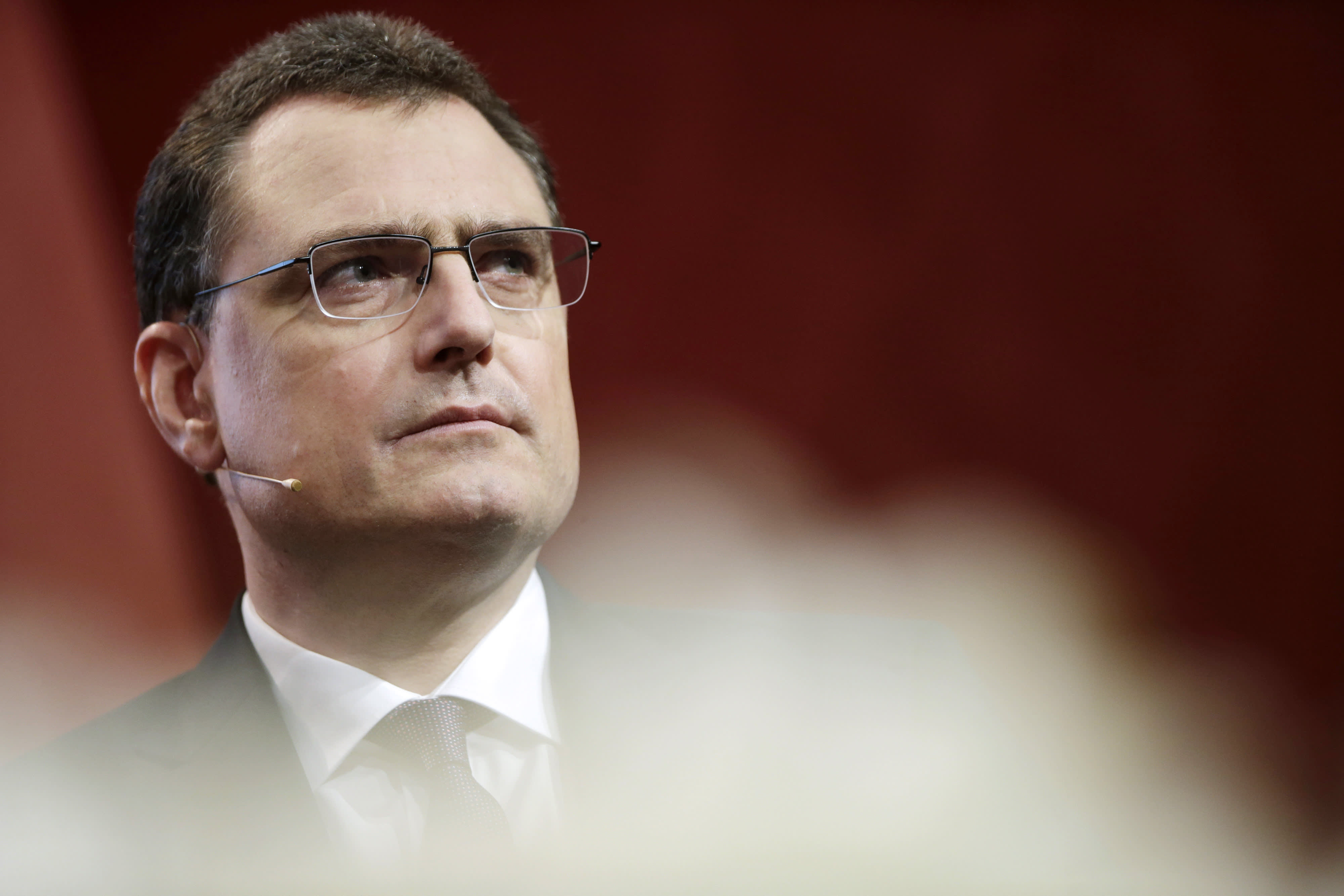Swiss National Bank chief says policy will stay the course despite uptick in inflation

Thomas Jordan, president of the Swiss National Bank (SNB), pauses during the Swiss International Finance Forum in Bern, Switzerland.
Matthew Lloyd | Getty Images
LONDON — The Swiss National Bank on Thursday increased its inflation and GDP forecasts but vowed to keep monetary policy ultra-loose to counter the highly valued Swiss franc.
Inflation is now expected to hit 0.4% in 2021, up from a previous forecast of 0.2%, rising to 0.6% in 2022 and 2023, while GDP is now projected to grow 3.5% this year, up from its previous forecast of between 2.5% and 3%.
However, SNB Governor Thomas Jordan told CNBC that this was not sufficient reason to change course, as the central bank held its base policy rate at a global low of -0.75%.
Both the European Central Bank and the U.S. Federal Reserve have raised their inflation forecasts in the past week in response to sharp spikes in prices, with the latter offering a hawkish signal that two hikes to interest rates could be coming down the pike in 2023.
Jordan highlighted that even the Swiss two- and three-year inflation outlook of 0.6% remains low in comparison to international peers, with the ECB expecting annual inflation in the euro zone to reach 1.9% this year and 1.5% in 2022. The SNB stressed in Thursday's report that it expects long-term inflation to be firmly anchored at 1%.
"We are very happy that we are back in positive territory but inflation remains very, very low," Jordan said.
"For us, it's clear we still need an expansionary monetary policy. The Swiss franc is highly valued, inflation is very low, the output gap is still negative so all in all, I think it's necessary to maintain the monetary policy unchanged — negative interest rates — but also the willingness to intervene if necessary in the foreign exchange markets is very important at this moment," he said, adding that this will likely be the case "for some time to come."
Swiss franc pressures
The U.S. Treasury Department recently dropped its label of Switzerland as a currency manipulator after former President Donald Trump's administration issued the tag in December on the back of the SNB's intervention in foreign exchange markets. The SNB rejected the designation, citing extenuating circumstances surrounding the high value of the Swiss franc.
Jordan noted that the currency, often perceived as a so-called "safe haven" in foreign exchange markets, had seen "huge inflows" during the first half of 2020 as the Covid-19 pandemic hit, which necessitated intervention from the SNB.
"The Swiss franc is still highly valued and this is one of the reasons that we have low inflation, probably lower inflation than elsewhere, and it is also one of the key reasons that we have to maintain our expansionary monetary policy for some time," he said.
Karsten Junius, chief economist at asset manager J. Safra Sarasin, said in a note Thursday that the SNB's policy position sounded "a bit defensive" in an environment with strong Swiss exports, a booming global economy and "less and less evidence that the Swiss franc is materially overvalued."
"Hence, we also see no need for strong FX-interventions in the coming months and believe that the SNB could allow for some CHF strength," he said.
Read More

No comments